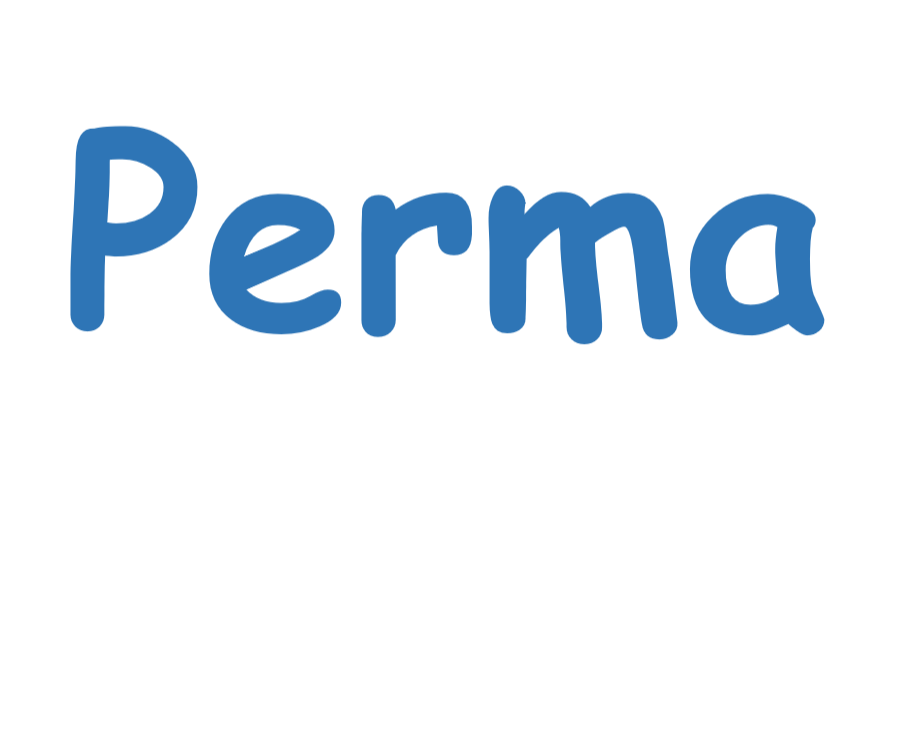
GreenPermaLinks: Development of water conservation and nutrient recycling strategies for efficient and environmentally sound regenerative, permacultural agro-forestry on small farms in Sierra Leone
We are:
(in alphabetical order)- Ms. Brigitte Amara-Dokubo; loewe.fuer.loewe@t-online.de; Löwe für Löwe e.V. (LfL-DE); Ottenroder Str. 12C, 38106 Braunschweig;
- Mr. Sahid Bangura; sardubagns1@gmail.com; Lowe fur Lowe r.S. (LfL-SL); 2 Seaside Road Hill Station Western Rural, Sierra Leone;
- Prof. Dr. Matthias Beyer; matthias.beyer@tu-braunschweig.de; Technische Universität Braunschweig, Institute of Geoecology (TU-IGÖ); Langer Kamp 19c, 38106 Braunschweig;
- Prof. Dr. Mohamed Matthew Blango; mmblango@njala.edu.sl; Njala University (NU), Department of Agricultural Engineering (NU-AE);
- Prof. Dr. Elke Bloem; elke.bloem@julius-kuehn.de; Julius Kühn-Institut, Institut für Pflanzenbau und Bodenkunde (JKI-PB), Bundesallee 58, 38116 Braunschweig;
- Prof. Dr. Matthias Bücker; m.buecker@tu-braunschweig.de; Technische Universität Braunschweig (TUBS), Institut für Geophysik und Extraterrestrische Physik (TU-IGEP); Mendelssohnstraße 3, 38106 Braunschweig;
- Dr. Falko Feldmann; falko.feldmann@julius-kuehn.de; Julius Kühn-Institut, Institut für Pflanzenschutz im Gartenbau und urbanem Grün (JKI-G), Messeweg 11-12, 38102 Braunschweig;
- Prof. Dr. Alhaji I. Sankoh; Alhaji.sankoh@mmcet.edu.sl; Milton Margai Technical University (MMTU); SSQ7 MMTU, Goderich Campus;
- Prof. Dr. Patrick Sawyerr; psawyerr@njala.edu.sl; Njala University, Department of Soil Science (NU-SS).
Associated researchers:
- M. Sc. Edwin Sam-Mbomah; esammbomah@njala.edu.sl; Institute of Environmental Management and Quality Control; Njala University; Sierra Leone
- M. Sc. Makalay Saidiatu Sonda; mssonda@njala.edu.sl; Department of Agric. Extension and Rural Sociology; Njala University, Sierra Leone
Still a proposal
The project idea was submitted in 2022. The proposal references to the objectives of the call Announcement No. 04/22/33 (German Federal Ministry of Food and Agriculture), "Innovative Sustainable Production Systems", Funding instrument: “International research cooperation for global food security”. The proposal is oriented to the “Directive on the funding of international research cooperation for global food security”.
- The project will make a contribution to improve food security in the target country Sierra Leone as well as in the region,
- The project meets the objectives and priorities of this call for proposals by developing an innovative sustainable production system: fundamental questions of water management and distribution are assessed by newest scientific methods and lead to a permacultural agro-forestry farm design, which can be easily adapted by farmers. Furthermore, the outcome will be a demonstration farm empowered to transfer the technology delivered by the project to other farmers even after the project has been completed.
- The research is participatory by working in research tandems of German and Sierra Leonean scientists, extension services and farmers. The project is of practical relevance for the target region due to the development of a production system with a presumably high relevance for the local farmers. The project is highly user- and outcome-oriented and is adapted to the needs of the farmers and the region by offering a multi-level approach from subsistence agriculture to market-oriented production and outcomes can be directly transferred into practice already during the project.
- The project makes a contribution to achieving 13 of 17 UN Sustainable Development Goals (SDGs, Annex 1).

Location
A unique aspect of this project is the localization on a recently founded demonstration farm (Moringa Innovation and Start-up Centre Sierra Leone, MOST, Annex 2) run by the non-profit organizations Löwe für Löwe e.V. (Germany, DE) and Lowe fur Lowe r. S. (Sierra Leone, SL) in the region of Waterloo, Sierra Leone. This will allow that all experiences and results can be transferred to practice immediately and sustainably supported by the research institutions and extension services even after the project terminated.
Main Goals
- Development of water conservation and nutrient recycling strategies for efficient and environmentally sound regenerative, permacultural agro-forestry on small farms in Sierra Leone
- Sustainable reinforcement of the Moringa Innovation and Start-up Centre Sierra Leone (MOST) as nucleus for continuing development of permacultural agro-forestry in Sierra Leone
- Establishment of an international GreenPermaLinks – network of scientific societies, scientists, citizen scientists, extension services, farmers, interested individuals and non-profit organizations related to the MOST actions

Working hypotheses
- Permaculture as practical agricultural approach can be simplified for use by poorly trained people through agro-ecological indicator systems related to plant selection, water management and nutrient recycling.
- An appropriate combination of compost preparation and ridge system (hugelculture) together with a swale system is the key for water storage options, will prevent erosion and restore soil fertility.
- Soil fertility can be enhanced by recycling of bio-waste as raw material for compost production classified by nutrient content.
- Mixed cropping and appropriate rotation of deep and shallow rooting useful plants will utilize water redistribution processes and reduce water demand of the innovative plant production system.
- Appropriate mixed cropping of annual, biannual and perennial cultivated plants (including bushes and trees) will result in biological control mechanisms with the option to reach compliance with organic agricultural standards.
- The innovative production system will result in a spectrum and quantity of useful plants, which allows subsistence and gradual up-scale of production for local, regional and international markets.
- Strengthening and empowerment of public-welfare oriented small agricultural NGOs can stabilize multi-level-stakeholder networks for sustainable local, regional and international exchange of knowledge and products.
- The MOST is able to form an international GreenPermaLinks – network of scientific societies, scientists, citizen scientists, extension services, farmers, interested individuals and non-profit organizations, which will be further developed after the project has been completed.
Brief description of the project
An existing demonstration farm (Moringa Innovation and Start-up Centre, MOST) jointly run by two non-profit organizations in Sierra Leone and in Germany will be transformed into a permacultural agro-forestry system based on the hugelculture/swale method. Because soil degradation and limited water supply in the dry season becomes a widespread problem in Sierra Leone, new methods will be developed and tested to explore new innovative on-farm options for water storage and redistribution to save and store water for the dry season and avoid erosion. The nutrient cycle on farm will be monitored and described including the export of nutrients via products. The return of exported nutrients like nitrogen, phosphate or potassium, and micronutrients is planned to be conducted by using bio-wastes from nearby villages and cities like Robekhe Village, Joe-Town and Waterloo to produce compost of estimable nutrient content. This approach will substitute the use of mineral fertilizer and will regenerate the soil by improving soil life and structure as well as water-storage capacity. Plant selection will focus on plant mixtures and plant rotation systems, which take specific water and nutrient demands into account. Plant mixtures will be used to control the outbreak of plant diseases and pests by the agro-ecological promotion of beneficial organisms like predatory wasps or mycorrhizal fungi; self-made botanical pesticides like Neem-extracts will be used instead of chemical-synthetical pesticides. Doing so, the innovative holistic production system will be compliant with international production standards for organic farming.
The MOST will form the nucleus for the GreenPermaLinks - network inviting the scientific community and other stakeholders to work on the farm even after the project has been finished.
Relevance
The project develops a sustainable, holistic production on basis of the permaculture principles. The basic features of a permacultural project are that it
- Integrates design principles reflecting whole system thinking,
- Combines cultivated plants of all growth form types,
- Produces as diverse products as possible (ranging from timber, oil and fibers to vegetables, fruits, starch crops and medicinal plants),
- Is purely organic avoiding agro-chemicals,
- Extracts as much as is revolved,
- Recirculates nutrients,
- Produces no waste,
- Includes water harvesting methods
- Catches and stores energy,
- Aims at regenerative, diverse and self-maintained habitats,
- Observes and interacts,
- Applies self-regulation and accepts feedback,
- Is designed from pattern to details,
- Integrates rather than segregates,
- Uses small and slow solutions,
- Develops use and value diversity,
- Uses side-effects observed and values the marginal,
- Creatively uses and responds to change.
Such complex, holistic approaches usually need farmers with a broad knowledge and experience to apply them successfully. The project intends to simplify key elements in a reproducible way, specifically the water and nutrient management. Furthermore, the plant selection and the planting and rotation system under Sierra Leonean conditions will be worked out in a participatory way, i.e. respecting the farmers’ customs, needs and wishes in order to create acceptance for necessary changes in traditional production systems. Concurrent training will enhance the acceptance and knowledge of permaculture principles. It is expected that respecting the above principles will result in an economically, ecologically and socially stable and sustainable production system. This production system to be developed will be a self-optimizing innovative sustainable production system:
- Economically, it guarantees subsistence of the farmers and opens opportunities to access local, regional and finally, international markets by producing fresh products with short and long shelf-life, and processed goods at the same time. An exotic multipurpose tree (Moringa oleifera) underutilized in Sierra Leone so far will be put into the nexus of food – health – production quality locally and will increase income of producers because of high prices on the world market for leaves and seeds. The basis will be laid for compliance with international trade standards like IFOAM organic agriculture.
- Ecologically, a science-based landscape planning will result in a water harvest and conservation design on farm. Simple methods will be provided for farmers to practice this under diverse circumstances. Recycling of bio-waste will guarantee sustainable production. The nutrient-flow assessment will result in a nutrient based classification system of compost, and application strategies for compost in relation to crop demand of the different crops.
- Socially, it overcomes malnutrition of children and foster women by their involvement in agricultural production and the transfer of methodology and knowledge to them. Formation of women´s cooperatives will be recommended as future oriented tool for international export of products. The whole production system will include traditional elements, will respect preferences of farmers and will increase education by applying a holistic way of thinking and management. This will create expertise of the farmers involved.

Possible synergies or distinction from existing projects
- The project will be located mainly in the Moringa Innovation and Start-up Centre (MOST) and on reference areas. The MOST belongs to the non-profit organization Lowe fur Lowe Sierra Leone r. S., which is supported by the independent non-profit organization Löwe für Löwe e. V. Braunschweig, Germany, since more than twenty years. In the MOST, agriculture is planned as citizen science approach, i.e. farmers learn by doing, monitor, document and teach their community. The project started with the construction of facilities in 2018. The MOST will directly interact with all other projects of LfL including health station, school, and radio station.
- The proposal fits into this developing center’s concept, uses the infrastructure and implements the agricultural part as demonstration farm. JKI is working with LfL-SL/LfL-DE and Njala University since 2018 on a consultancy basis fixed in a Memorandum of Understanding between the partners.
- A solar power system has been installed and provides sufficient energy for a laboratory, a factory and a school building. These facilities will be shared with the universities involved in the project. Own or shared equipment for diagnosis and analyses should complement the center and allow education of farmers and students on‐farm organized by the academic partners. Furthermore, the offer of a start‐up consultancy service as the basis for small‐scale entrepreneurial actions is intended.
- Groundwater wells for water production from a 20 m deep aquifer are available, a nursery for propagation of plant material and a network for the acquisition of staff working on the farm is already established. This allows a rapid start of the project proposed.
- The farm area has already been planted with Moringa trees in the last years. The Moringa tree is a multipurpose tree, which was recently grown for the fight against anemia of children in the hospital of the non-profit organization LfL using dried or fresh leaves as food supplement.
- The German consortium partners start a project in Germany in September 2022, which aims at the development of vitality indices for urban trees influenced by climatic factors like drought using the same new scientific methods for the exploration of the local subsurface water saturation and the monitoring of the actual water use and redistribution by plants. This will provide synergistic effects to the studies under the tropical conditions of Sierra Leone.
- In the Njala University, a project started to redesign the vegetable production of women cooperatives to organic agriculture standards. This will provide the chance to crosslink the project in the third year with synergistic effects, which has been confirmed already.
Interfaces to other actions to be connected
- Locally, the existing network of field workers already temporarily working on the demonstration farm and living in Robekhe Village and Joe-Town will ensure the contact to nearby farms and villages.
- Regionally, the network of bio-waste collection points to be established will spread the information of the demonstration farm up to the town Waterloo.
- Nationally, the permanent exchange of students with the universities in Freetown guarantees the discussion of the approach in comparison to other production systems existing in other parts of the country. For instance, the cited vegetable women project is carried out in Koinadugu and will connect to very distant parts of Sierra Leone. Furthermore, concurrent meetings and scientific symposia will be used as interface for scientific discussions.
- Internationally, the most important European congress on tropical agriculture “Tropentag” carried out each year in September will be an interface to the international community. Here, specific workshops on the GreenPermaLinks - project will be carried out and results presented in order to enhance the GreenPermaLinks - network. Additionally, results of the project will be published in international peer reviewed journals.
- The project will be linked to the Senior Expert Service of the German Ministry for International Cooperation by inviting Short Term Experts to clarify specific practically occurring questions.
- The project will be integrated in the German ATSAF network (Council for Tropical and Subtropical Research), and the working group “Plant Protection in the Tropics and Subtropics” of the German Society for Plant Protection and Plant Health (DPG e.V.). Within Sierra Leone, LfL will connect the project through products and information with their health station and school. NU and MMTU will distribute their information not only to their students but also to the Sierra Leonean Agricultural Research Institute (SLARI).